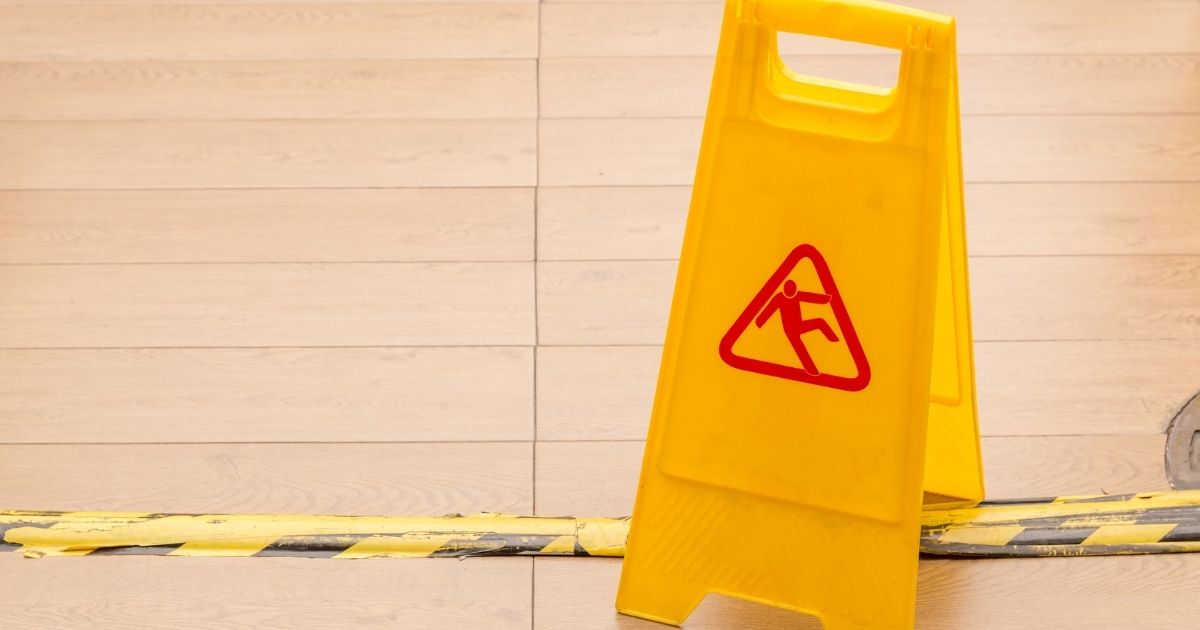Most people do not understand or know about premises liability. However, when someone gets injured on another person’s property, the legal concept of premises liability suddenly enters their vocabulary.
When an injury happens after a slip and fall accident, a person may want to simply remove themselves from the situation as quickly as possible. However, that can cause evidence to be lost, possibly diminishing the amount of compensation the injured person could receive. Speaking with an experienced lawyer right after a slip and fall accident can help a victim get the guidance they need to help them recover.
Premises liability occurs when a person suffers an injury caused by a defect or unsafe condition on someone else’s property. The most common example of a premises liability claim is when someone slips and falls on another person’s property. This most often happens at a store, parking lot, or another public place. When the property or store owner fails to fix a problem on their property and someone else gets injured, the owner may be liable.
Premises liability claims are fairly complex. They involve determining the legal status of the parties and figuring out to what extent the dangerous condition on the property contributed to the injury. That is why it is best to always partner with a trusted legal representative.
What are Common Premises Liability Examples?
Premises liability claims can arise from countless situations. While some cause only minor injuries, even those injuries can create painful situations and the need for ongoing medical care for the injured person.
The most common examples of events that give rise to a premises liability claim include:
- Slip and fall
- Poor lighting
- No handrails on stairs
- Damaged walkways
Any time a person gets injured on someone else’s property, whether at a friend’s house or out to dinner at a restaurant, a dangerous condition may have caused the injury on the property and could give rise to a premises liability claim.
Are Property Owners Responsible for Slip and Fall Accidents?
New Jersey law requires property owners to keep their property safe and in compliance, which is called a duty of care. Property owners must rectify any defects or dangerous conditions on the property. Even if the property owner did not know about a dangerous condition but should have known, they may still be liable for subsequent injuries.
Legal Status
The legal status of the person who suffered injuries may also factor into how much compensation the victim can receive. Sometimes, an injured person may not be entitled to a high duty of care by the property owner, so they may not be able to receive compensation. Speaking with a knowledgeable lawyer can help an injured person determine their legal status and rights.
Invitee
An invitee is someone who is invited onto the property. Invitees are often friends or relatives that are invited to someone’s house for dinner or a gathering. When people go to visit a store or restaurant, those people are also invitees.
Property owners owe the highest duty of care to invitees. The property owner must not only notify invitees of dangerous conditions on the property, they must take proactive steps to rectify any problems so the invitees remain safe.
Licensee
A licensee is someone who is on the owner’s property for their own benefit. Visiting a friend at an apartment complex might make someone a licensee. The friend does not own the property and the injured person is visiting for social reasons, not to rent an apartment. The law considers this person a licensee.
Property owners owe licensees a slightly reduced duty of care. The property owner must warn licensees of dangerous conditions on the property only if the property owner knows about the condition and the licensee is not likely to discover the dangerous condition without first suffering an injury.
Trespasser
Trespassers are not authorized to be on the property. They receive the lowest duty of care from property owners. A property owner must exercise a reasonable degree of care to avoid foreseeable risk of harm to trespassers. The most common example of this is putting up a fence around a swimming pool.
Property owners also cannot make their property more dangerous to trespassers. For example, if a property owner digs a hole and covers it with light brush and a trespasser falls into the hole and gets injured, the property owner may be liable for more damages because they created the dangerous condition on their property.
Understanding the differences between the different levels of legal status and the duty of care owed by property owners gets confusing. When someone gets injured on another person’s property, their best option is to speak with a lawyer right away.
Mount Laurel Slip and Fall Lawyers at the Law Office of David S. Rochman Help Clients Understand Premises Liability Laws
Slipping and falling is embarrassing, but it can also be extremely painful and cause ongoing medical issues. This injury is even more frustrating when it is someone else’s fault and could have been prevented. The Mount Laurel slip and fall lawyers at the Law Office of David S. Rochman have the experience and resources necessary to guide you through the complex premises liability claim process. Contact us online or call us at 856-751-2345 to schedule a free consultation. Located in Mount Laurel, New Jersey, we serve clients throughout the surrounding areas.


